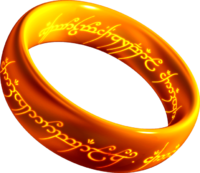- Comic fantasy
-
Fantasy Fantasy media
- Fantastic art
- Fantasy anime
- Fantasy art
- Fantasy artists
- Fantasy authors
- Fantasy comics
- Fantasy fiction magazine
- Fantasy films
- Fantasy literature
- Fantasy television
- Fantasy webcomics
Genre studies
- History of fantasy
- Fantastic
- Fantastique
- Fantasy tropes
and conventions - Fantasy races
- Fantasy worlds
- Legendary creatures
- Lovecraftianism
- Magician
- Magic
- Religious themes
- Tolkienology
Categories
- Fantasy
- Fantasy awards
- Fantasy subgenres
- Fantasy television
- Fantasy tropes
Comic fantasy is a subgenre of fantasy that is primarily humorous in intent and tone. Usually set in imaginary worlds, comic fantasy often includes puns on and parodies of other works of fantasy. It is sometimes known as Low fantasy in contrast to High fantasy, which is primarily serious in intent and tone. The term "Low Fantasy" is used to represent other types of fantasy, however, so while comic fantasies may also correctly be classified as low fantasy, many examples of low fantasy are not comic in nature.
History
The subgenre rose in the nineteenth century. Elements of comic fantasy can be found in such nineteenth century works as some of Hans Christian Anderson's fairy tales, Charles Dickens' "Christmas Books", and Lewis Carroll's Alice books. [1] The first writer to specialize in the sub-genre was "F. Anstey" in novels such as Vice Versa (1882), where magic disrupts Victorian society with humourous results. [1] Anstey's work was popular enough to inspire several imitations, including E. Nesbit's light-hearted children's fantasies, The Phoenix and the Carpet (1904) and The Story of the Amulet (1906). [1] The United States had several writers of comic fantasy, including James Branch Cabell, whose satirical fantasy Jurgen, A Comedy of Justice (1919) was the subject of an unsuccessful prosecution for obscenity. [2] Another American writer in a similar vein was Thorne Smith,whose works (such as Topper and The Night Life of the Gods) were popular and influential, and often adapted for film and television. [3] T.H. White's works exemplify it,[4] L. Sprague de Camp and Fletcher Pratt's Harold Shea stories are early exemplars. The overwhelming bulk of de Camp's fantasy was comic.[5] Pratt and de Camp were among several contributors to Unknown Worlds, a pulp magazine which emphasized fantasy with a comedic element. The work of Fritz Leiber also appeared in Unknown Worlds, including his Fafhrd and the Gray Mouser stories, a jocose take on the sword and sorcery subgenre.[1]
In more modern times, Piers Anthony's Xanth books, Robert Asprin's MythAdventures of Skeeve and Aahz books, Terry Pratchett's Discworld, and Tom Holt's books provide good examples,[1] as do many of the works by Christopher Moore. Not surprisingly there are also comic-strips/graphic novels in the humorous fantasy genre, including Chuck Whelon's Pewfell series and the webcomics 8-Bit Theater and The Order of the Stick.
The subgenre has also been represented in television and film, such as in the television series I Dream of Jeannie, Krod Mandoon, and the 1975 film Monty Python and the Holy Grail. Examples on radio are the BBC's Hordes of the Things and ElvenQuest.
References
- ^ a b c d e "Humourous Fantasy" in David Pringle,ed, The Ultimate Encyclopedia of Fantasy, (pp.31-33). London, Carlton, 2006. ISBN 1844421104
- ^ Edgar MacDonald, "James Branch Cabell" in E. F. Bleiler, ed.Supernatural Fiction Writers (pp. .789-796). New York: Scribner's, 1985. ISBN 0-684-17808-7
- ^ Keith Neilson, "Thorne Smith" in Bleiler, ed.Supernatural Fiction Writers. (pp. 805-812),1985.
- ^ Lin Carter, ed. Kingdoms of Sorcery, p 121–2. Doubleday and Company Garden City, NY, 1976.
- ^ Carter. Kingdoms of Sorcery.
Categories:- Fantasy genres
- Fantasy stubs
Wikimedia Foundation. 2010.

